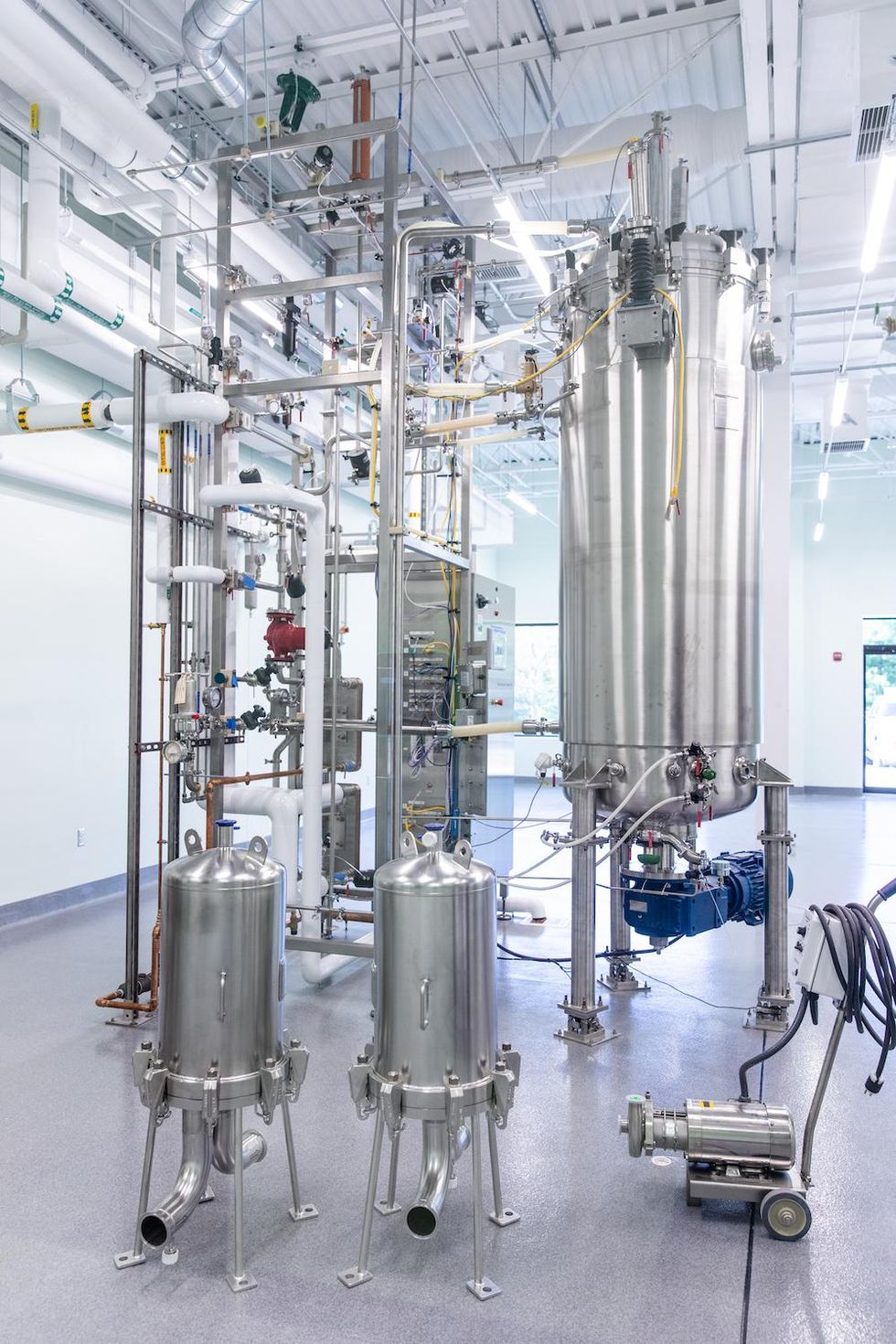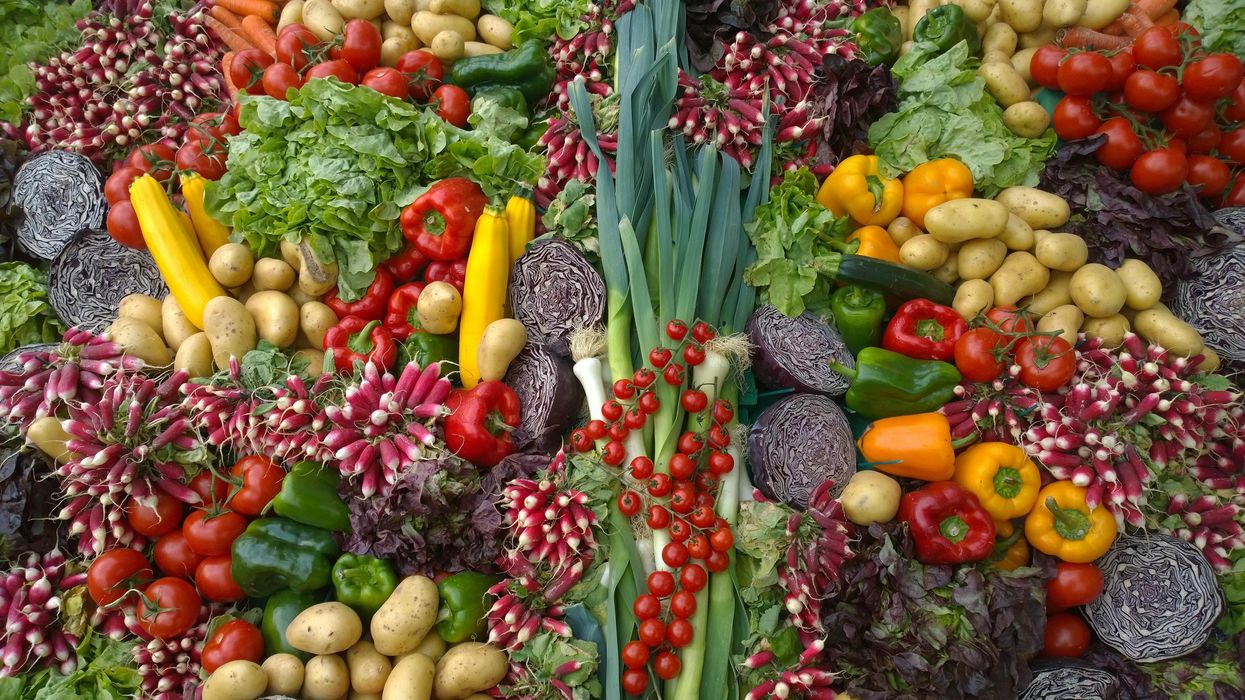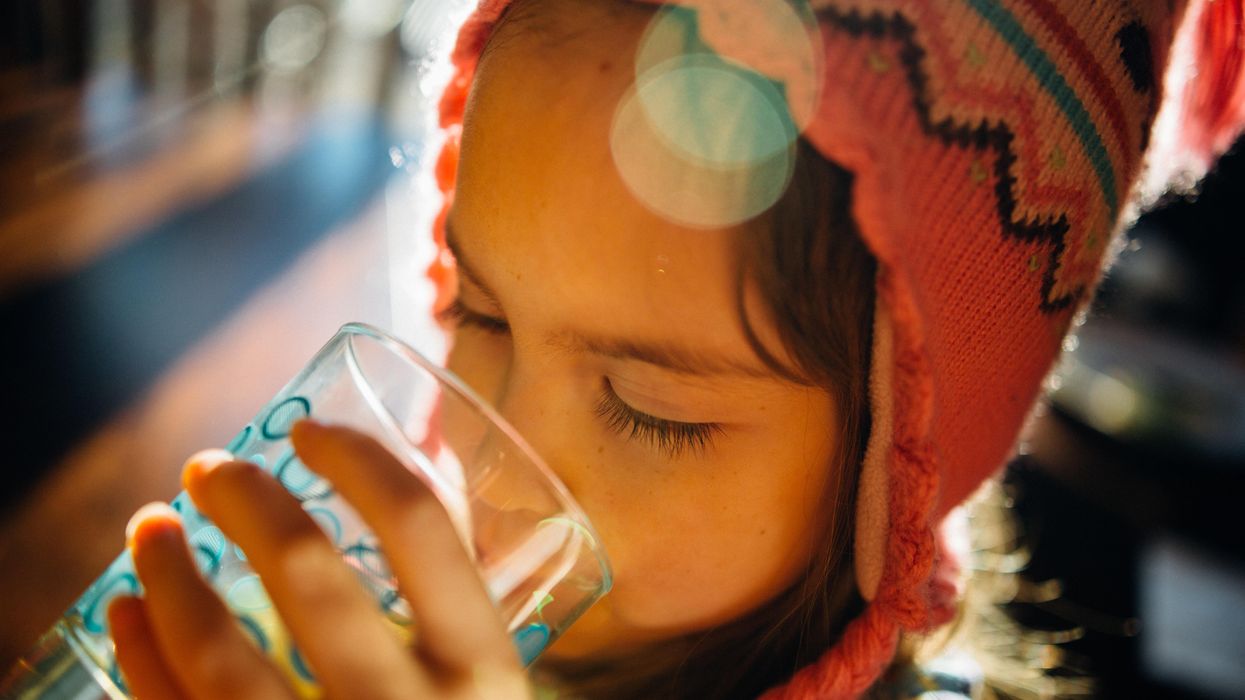How to free our kids - and ourselves - from tech addiction, with Gaia Bernstein

In today's podcast episode, law professor Gaia Bernstein talks about the challenges of keeping control over our thoughts and actions, even when some powerful forces are pushing in the other direction.
Each afternoon, kids walk through my neighborhood, on their way back home from school, and almost all of them are walking alone, staring down at their phones. It's a troubling site. This daily parade of the zombie children just can’t bode well for the future.
That’s one reason I felt like Gaia Bernstein’s new book was talking directly to me. A law professor at Seton Hall, Gaia makes a strong argument that people are so addicted to tech at this point, we need some big, system level changes to social media platforms and other addictive technologies, instead of just blaming the individual and expecting them to fix these issues.
Gaia’s book is called Unwired: Gaining Control Over Addictive Technologies. It’s fascinating and I had a chance to talk with her about it for today’s podcast. At its heart, our conversation is really about how and whether we can maintain control over our thoughts and actions, even when some powerful forces are pushing in the other direction.
Listen on Apple | Listen on Spotify | Listen on Stitcher | Listen on Amazon | Listen on Google
We discuss the idea that, in certain situations, maybe it's not reasonable to expect that we’ll be able to enjoy personal freedom and autonomy. We also talk about how to be a good parent when it sometimes seems like our kids prefer to be raised by their iPads; so-called educational video games that actually don’t have anything to do with education; the root causes of tech addictions for people of all ages; and what kinds of changes we should be supporting.
Gaia is Seton’s Hall’s Technology, Privacy and Policy Professor of Law, as well as Co-Director of the Institute for Privacy Protection, and Co-Director of the Gibbons Institute of Law Science and Technology. She’s the founding director of the Institute for Privacy Protection. She created and spearheaded the Institute’s nationally recognized Outreach Program, which educated parents and students about technology overuse and privacy.
Professor Bernstein's scholarship has been published in leading law reviews including the law reviews of Vanderbilt, Boston College, Boston University, and U.C. Davis. Her work has been selected to the Stanford-Yale Junior Faculty Forum and received extensive media coverage. Gaia joined Seton Hall's faculty in 2004. Before that, she was a fellow at the Engelberg Center of Innovation Law & Policy and at the Information Law Institute of the New York University School of Law. She holds a J.S.D. from the New York University School of Law, an LL.M. from Harvard Law School, and a J.D. from Boston University.
Gaia’s work on this topic is groundbreaking I hope you’ll listen to the conversation and then consider pre-ordering her new book. It comes out on March 28.

Food Poisoning Sickens Millions a Year. Now, a Surprising Weapon Is Helping Protect Against Contamination.
Phages, which are harmless viruses that destroy specific bacteria, are becoming useful tools to protect our food supply.
Every year, one in seven people in America comes down with a foodborne illness, typically caused by a bacterial pathogen, including E.Coli, listeria, salmonella, or campylobacter. That adds up to 48 million people, of which 120,000 are hospitalized and 3000 die, according to the Centers for Disease Control. And the variety of foods that can be contaminated with bacterial pathogens is growing too. In the 20th century, E.Coli and listeria lurked primarily within meat. Now they find their way into lettuce, spinach, and other leafy greens, causing periodic consumer scares and product recalls. Onions are the most recent suspected culprit of a nationwide salmonella outbreak.
Some of these incidents are almost inevitable because of how Mother Nature works, explains Divya Jaroni, associate professor of animal and food sciences at Oklahoma State University. These common foodborne pathogens come from the cattle's intestines when the animals shed them in their manure—and then they get washed into rivers and lakes, especially in heavy rains. When this water is later used to irrigate produce farms, the bugs end up on salad greens. Plus, many small farms do both—herd cattle and grow produce.
"Unfortunately for us, these pathogens are part of the microflora of the cows' intestinal tract," Jaroni says. "Some farmers may have an acre or two of cattle pastures, and an acre of a produce farm nearby, so it's easy for this water to contaminate the crops."
Food producers and packagers fight bacteria by potent chemicals, with chlorine being the go-to disinfectant. Cattle carcasses, for example, are typically washed by chlorine solutions as the animals' intestines are removed. Leafy greens are bathed in water with added chlorine solutions. However, because the same "bath" can be used for multiple veggie batches and chlorine evaporates over time, the later rounds may not kill all of the bacteria, sparing some. The natural and organic producers avoid chlorine, substituting it with lactic acid, a more holistic sanitizer, but even with all these efforts, some pathogens survive, sickening consumers and causing food recalls. As we farm more animals and grow more produce, while also striving to use fewer chemicals and more organic growing methods, it will be harder to control bacteria's spread.
"It took us a long time to convince the FDA phages were safe and efficient alternatives. But we had worked with them to gather all the data they needed, and the FDA was very supportive in the end."
Luckily, bacteria have their own killers. Called bacteriophages, or phages for short, they are viruses that prey on bacteria only. Under the electron microscope, they look like fantasy spaceships, with oblong bodies, spider-like legs and long tails. Much smaller than a bacterium, phages pierce the microbes' cells with their tails, sneak in and begin multiplying inside, eventually bursting the microbes open—and then proceed to infect more of them. The best part is that these phages are harmless to humans. Moreover, recent research finds that millions of phages dwell on us and in us—in our nose, throat, skin and gut, protecting us from bacterial infections as part of our healthy microbiome. A recent study suggested that we absorb about 30 billion phages into our bodies on a daily basis. Now, ingeniously, they are starting to be deployed as anti-microbial agents in the food industry.
A Maryland-based phage research company called Intralytix is doing just that. Founded by Alexander Sulakvelidze, a microbiologist and epidemiologist who came to the United States from Tbilisi, the capital of Georgia, Intralytix makes and sells five different FDA-approved phage cocktails that work against some of the most notorious food pathogens: ListShield for Listeria, SalmoFresh for Salmonella, ShigaShield for Shigella, another foodborne bug, and EcoShield for E.coli, including the infamous strain that caused the Jack in the Box outbreak in 1993 that killed four children and sickened 732 people across four states. Earlier this month, the FDA granted its approval to yet another Intralytix phage for managing Campylobacter contamination, named CampyShield. "We call it safety by nature," Sulakvelidze says.

Intralytix grows phages inside massive 1500-liter fermenters, feeding them bacterial "fodder."
Photo credit: Living Radiant Photography
Phage preparations are relatively straightforward to make. In nature, phages thrive in any body of water where bacteria live too, including rivers, lakes and bays. "I can dip a bucket into the Chesapeake Bay, and it will be full of all kinds of phages," Sulakvelidze says. "Sewage is another great place to look for specific phages of interest, because it's teeming with all sorts of bacteria—and therefore the viruses that prey on them." In lab settings, Intralytix grows phages inside massive 1500-liter fermenters, feeding them bacterial "fodder." Once phages multiply enough, they are harvested, dispensed into containers and shipped to food producers who have adopted this disinfecting practice into their preparation process. Typically, it's done by computer-controlled sprayer systems that disperse mist-like phage preparations onto the food.
Unlike chemicals like chlorine or antibiotics, which kill a wide spectrum of bacteria, phages are more specialized, each feeding on specific microbial species. A phage that targets salmonella will not prey on listeria and vice versa. So food producers may sometimes use a combo of different phage preparations. Intralytix is continuously researching and testing new phages. With a contract from the National Institutes of Health, Intralytix is expanding its automated high-throughput robot that tests which phages work best against which bacteria, speeding up the development of the new phage cocktails.
Phages have other "talents." In her recent study, Jaroni found that phages have the ability to destroy bacterial biofilms—colonies of microorganisms that tend to grow on surfaces of the food processing equipment, surrounding themselves with protective coating that even very harsh chemicals can't crack. "Phages are very clever," Jaroni says. "They produce enzymes that target the biofilms, and once they break through, they can reach the bacteria."
Convincing the FDA that phages were safe to use on food products was no easy feat, Sulakvelidze says. In his home country of Georgia, phages have been used as antimicrobial remedies for over a century, but the FDA was leery of using viruses as food safety agents. "It took us a long time to convince the FDA phages were safe and efficient alternatives," Sulakvelidze says. "But we had worked with them to gather all the data they needed, and the FDA was very supportive in the end." The agency had granted Intralytix its first approval in 2006, and over the past 10 years, the company's sales increased by over 15-fold. "We currently sell to about 40 companies and are in discussions with several other large food producers," Sulakvelidze says. One indicator that the industry now understands and appreciates the science of phages was that his company was ranked as Top Food Safety Provider in 2021 by Food and Beverage Technology Review, he adds. Notably, phage sprays are kosher, halal and organic-certified.
Intralytix's phage cocktails to safeguard food from bacteria are approved for consumers in addition to food producers, but currently the company sells to food producers only. Selling retail requires different packaging like easy-to-use spray bottles and different marketing that would inform people about phages' antimicrobial qualities. But ultimately, giving people the ability to remove pathogens from their food with probiotic phage sprays is the goal, Sulakvelidze says.
It's not the company's only goal. Now Intralytix is going a step further, investigating phages' probiotic and therapeutic abilities. Because phages are highly specialized in the bacteria they target, they can be used to treat infections caused by specific pathogens while leaving the beneficial species of our microbiome intact. In an ongoing clinical trial with Mount Sinai, Intralytix is now investigating a potential phage treatment against a certain type of E. coli for patients with Crohn's disease, and is about to start another clinical trial for treating bacterial dysentery.
"Now that we have proved that phages are safe and effective against foodborne bacteria," Sulakvelidze says, "we are going to demonstrate their potential in therapeutic applications."
Lina Zeldovich has written about science, medicine and technology for Popular Science, Smithsonian, National Geographic, Scientific American, Reader’s Digest, the New York Times and other major national and international publications. A Columbia J-School alumna, she has won several awards for her stories, including the ASJA Crisis Coverage Award for Covid reporting, and has been a contributing editor at Nautilus Magazine. In 2021, Zeldovich released her first book, The Other Dark Matter, published by the University of Chicago Press, about the science and business of turning waste into wealth and health. You can find her on http://linazeldovich.com/ and @linazeldovich.
Your Future Smartphone May Detect Problems in Your Water
Biosensors on a touchscreen are showing promise for detecting arsenic and lead in water.
In 2014, the city of Flint, Michigan switched the residents' water supply to the Flint river, citing cheaper costs. However, due to improper filtering, lead contaminated this water, and according to the Associated Press, many of the city's residents soon reported health issues like hair loss and rashes. In 2015, a report found that children there had high levels of lead in their blood. The National Resource Defense Council recently discovered there could still be as many as twelve million lead pipes carrying water to homes across the U.S.
What if Flint residents and others in afflicted areas could simply flick water onto their phone screens and an app would tell them if they were about to drink contaminated water? This is what researchers at the University of Cambridge are working on to prevent catastrophes like what occurred in Flint, and to prepare for an uncertain future of scarcer resources.
Underneath the tough glass of our phone screen lies a transparent layer of electrodes. Because our bodies hold an electric charge, when our finger touches the screen, it disrupts the electric field created among the electrodes. This is how the screen can sense where a touch occurs. Cambridge scientists used this same idea to explore whether the screen could detect charges in water, too. Metals like arsenic and lead can appear in water in the form of ions, which are charged particles. When the ionic solution is placed on the screen's surface, the electrodes sense that charge like how they sense our finger.
Imagine a new generation of smartphones with a designated area of the screen responsible for detecting contamination—this is one of the possible futures the researchers propose.
The experiment measured charges in various electrolyte solutions on a touchscreen. The researchers found that a thin polymer layer between the electrodes and the sample solution helped pick up the charges.
"How can we get really close to the touch electrodes, and be better than a phone screen?" Horstmann, the lead scientist on the study, asked himself while designing the protective coating. "We found that when we put electrolytes directly on the electrodes, they were too close, even short-circuiting," he said. When they placed the polymer layer on top the electrodes, however, this short-circuiting did not occur. Horstmann speaks of the polymer layer as one of the key findings of the paper, as it allowed for optimum conductivity. The coating they designed was much thinner than what you'd see with a typical smartphone touchscreen, but because it's already so similar, he feels optimistic about the technology's practical applications in the real world.
While the Cambridge scientists were using touchscreens to measure water contamination, Dr. Baojun Wang, a synthetic biologist at the University of Edinburgh, along with his team, created a way to measure arsenic contamination in Bangladesh groundwater samples using what is called a cell-based biosensor. These biosensors use cornerstones of cellular activity like transcription and promoter sequences to detect the presence of metal ions in water. A promoter can be thought of as a "flag" that tells certain molecules where to begin copying genetic code. By hijacking this aspect of the cell's machinery and increasing the cell's sensing and signal processing ability, they were able to amplify the signal to detect tiny amounts of arsenic in the groundwater samples. All this was conducted in a 384-well plate, each well smaller than a pencil eraser.
They placed arsenic sensors with different sensitivities across part of the plate so it resembled a volume bar of increasing levels of arsenic, similar to diagnostics on a Fitbit or glucose monitor. The whole device is about the size of an iPhone, and can be scaled down to a much smaller size.
Dr. Wang says cell-based biosensors are bringing sensing technology closer to field applications, because their machinery uses inherent cellular activity. This makes them ideal for low-resource communities, and he expects his device to be affordable, portable, and easily stored for widespread use in households.
"It hasn't worked on actual phones yet, but I don't see any reason why it can't be an app," says Horstmann of their technology. Imagine a new generation of smartphones with a designated area of the screen responsible for detecting contamination—this is one of the possible futures the researchers propose. But industry collaborations will be crucial to making their advancements practical. The scientists anticipate that without collaborative efforts from the business sector, the public might have to wait ten years until this becomes something all our smartphones are capable of—but with the right partners, "it could go really quickly," says Dr. Elizabeth Hall, one of the authors on the touchscreen water contamination study.
"That's where the science ends and the business begins," Dr. Hall says. "There is a lot of interest coming through as a result of this paper. I think the people who make the investments and decisions are seeing that there might be something useful here."
As for Flint, according to The Detroit News, the city has entered the final stages in removing lead pipe infrastructure. It's difficult to imagine how many residents might fare better today if they'd had the technology that scientists are now creating.
Of all its tragedy, COVID-19 has increased demand for at-home testing methods, which has carried over to non-COVID-19-related devices. Various testing efforts are now in the public eye.
"I like that the public is watching these directions," says Horstmann. "I think there's a long way to go still, but it's exciting."

